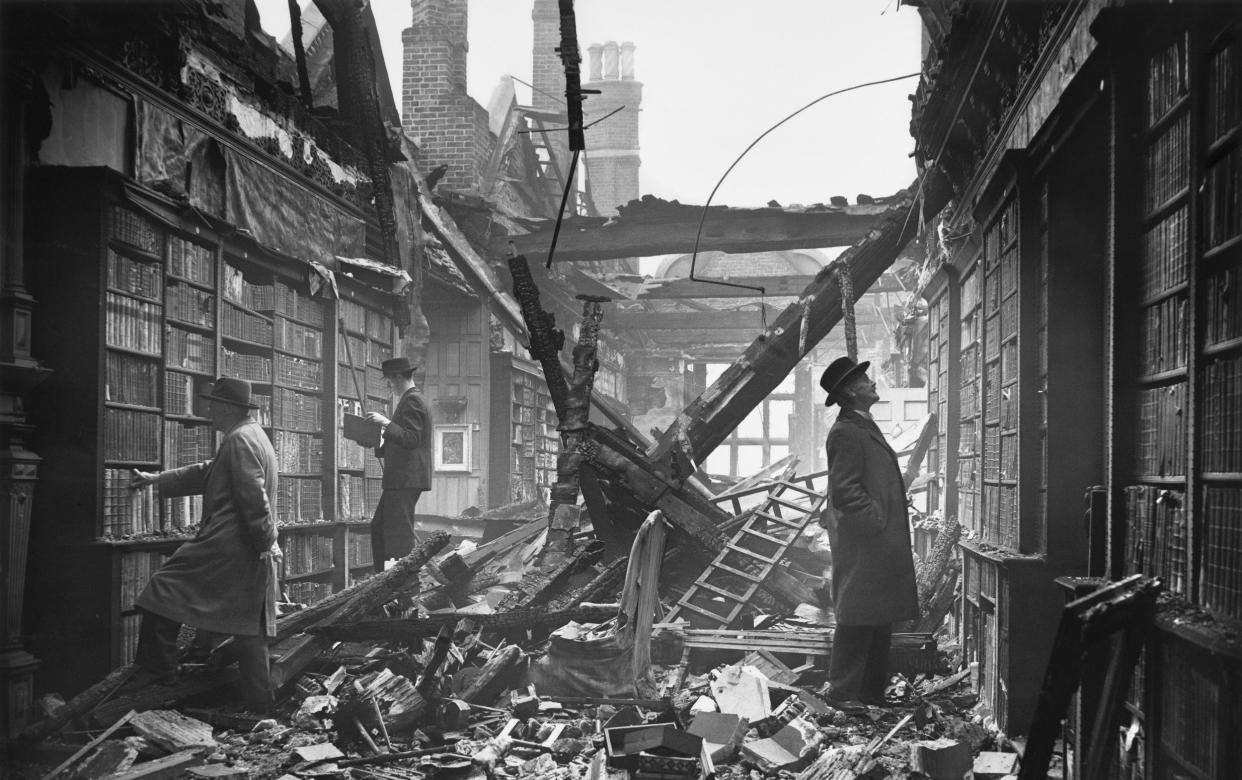George Orwell sneered at them – but these poems show why Christanity matters

FR Leavis wrote that the Four Quartets “demand… as complete an inwardness with the English language as any poetry that was ever written”. That observation highlighted the complexity of T S Eliot’s poetic thought, which unfolds in these meditations on man’s relationship with time and the universe.
Eliot wrote the first of the poems, Burnt Norton, in 1935, after visiting the country house of that name in Gloucestershire. In 1937, he visited East Coker, in Somerset – in whose parish church his ashes would be interred in 1965 – and around the time war broke out, he was writing a poem inspired by his visit there. The third poem, The Dry Salvages, takes its name from a group of rocks off Massachusetts, where he had gone sailing as a child, before his migration to England. The final poem, Little Gidding, published in 1942, was inspired by a religious community at the eponymous village in Huntingdonshire that was founded in 1626 and, with disruptions during the Civil Wars, lasted until 1657.
Eliot called them “quartets” because, as he explained, they were “all in a particular set form” – each has five sections – and that the title would “start people on the right track for understanding them” (he rejected “sonatas” as being “too musical”). The “track” Eliot had in mind was “making a poem by weaving in together three or four superficially unrelated themes”, making “a new whole”. All four have the theme of time; but they also explore the path to spiritual contentment from a state of tribulation, involving a rejection of materialism and recognising the importance of prayer. Orwell was appalled by Eliot’s use of poetry to advance, as he saw it, religion: presumably because he found it impossible to relate to such things.
The opening lines of Burnt Norton – “Time present and time past / Are both perhaps present in time future, / And time future contained in time past” – are the foundation upon which all four poems come to be built, and the next pair of lines gives the purpose of the whole exercise: “If all time is eternally present / All time is unredeemable.” This is not merely about the function of memory, but about the road to death: which invites the spiritual matter that runs through the Four Quartets.
East Coker is more overtly religious. It alludes to centuries of comings and goings: “Houses rise and fall, crumble, are extended, / Are removed, destroyed, restored, or in their place / Is an open field, or a factory, or a by-pass.” Life is summed up as “feet rising and falling. / Eating and drinking. Dung and death.”
The Dry Salvages uses the sea as a means of depicting eternity, with man supposed to sail and avoid the rocks: “The river is within us, the sea is all about us.” If that poem is water, Little Gidding is fire: the fire of bombs on London, and the hellfire of purgatory. A fire-watcher himself in the war, Eliot noted “three districts whence the smoke arose”, but foresaw the “bird sent flying through the purgatorial flame” – one would be “redeemed from fire by fire”. In the horror of a bombing war, religion, Eliot says to Orwell and others, is entirely necessary.
